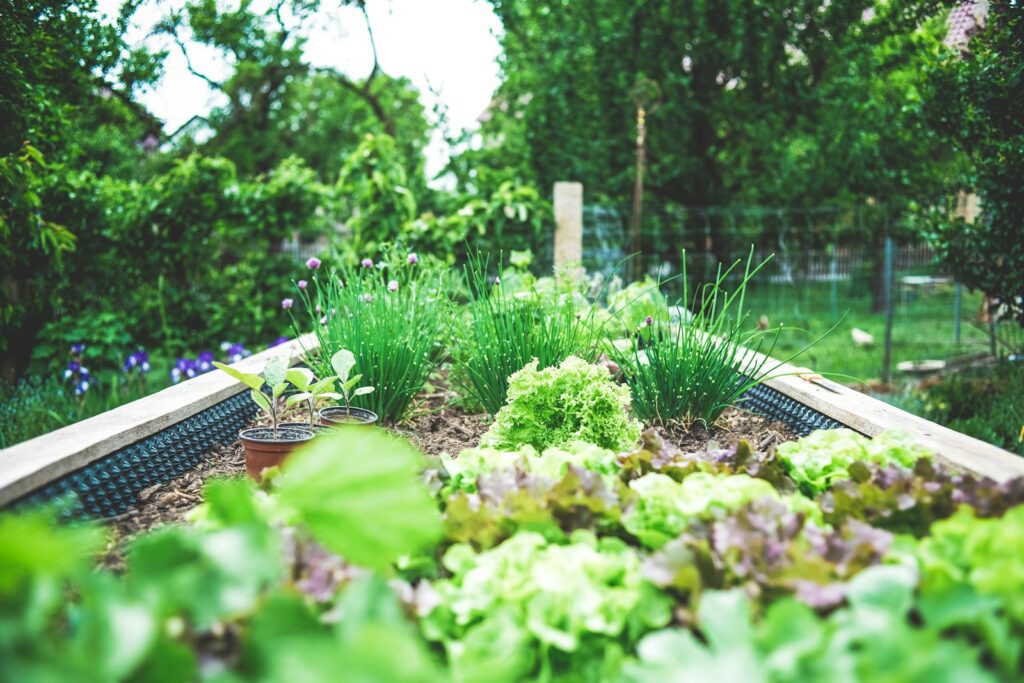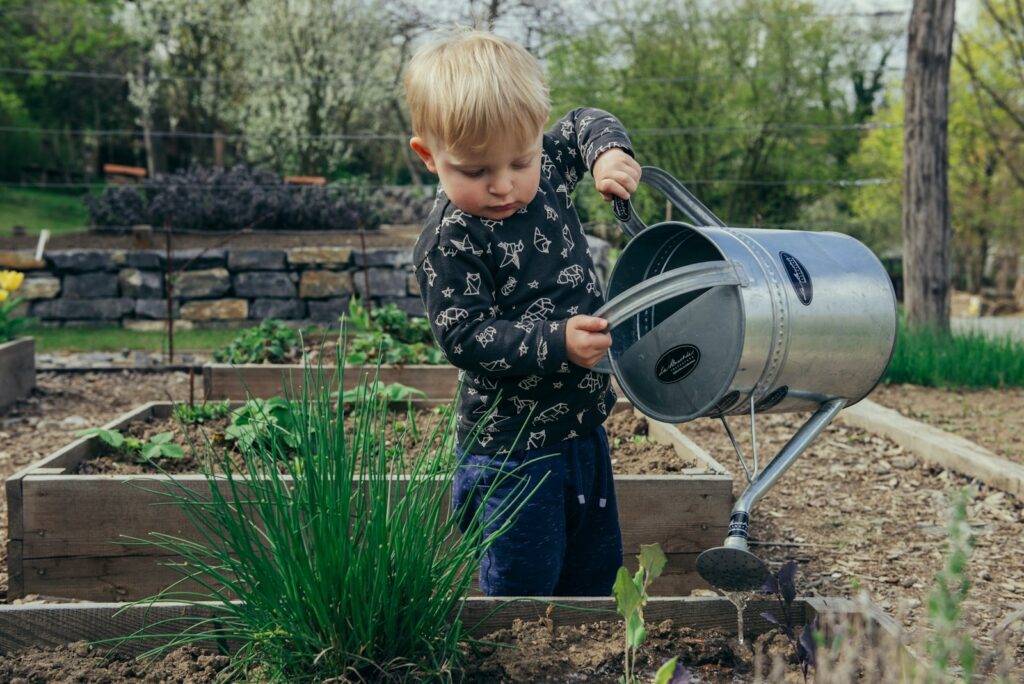Gardening is not only a popular hobby, but it also offers numerous benefits for our health. From physical fitness to mental well-being, Gardening has been proven to positively impact our overall well-being. In this article, we will explore how gardening can improve our health and why it is essential for everyone to try it.
Key Takeaways
- Gardening has numerous health benefits, including physical exercise and stress relief.
- Organic gardening is important for reducing exposure to harmful chemicals and promoting environmental sustainability.
- Natural gardening can improve soil health and attract beneficial insects and wildlife.
- Growing your own food can provide fresh, nutritious produce and reduce reliance on processed foods.
- Gardening can also be a social activity, connecting people with their community and promoting a sense of purpose.

The Benefits of Gardening for Health
Gardening is a fantastic way to improve physical health. It involves various activities such as digging, planting, weeding, and watering, which provide a great workout for our bodies. These activities help to improve strength, flexibility, and endurance. Gardening also promotes cardiovascular health by increasing heart rate and improving blood circulation. Studies have shown that regular gardening can reduce the risk of heart disease and stroke.
In addition to physical fitness, gardening offers several other health benefits. Spending time outdoors in the fresh air and sunlight can boost our immune system and increase vitamin D levels. Gardening also provides an opportunity to connect with nature, which has been proven to reduce stress and improve overall mental well-being.
Gardening as a Form of Exercise
Gardening is not just a hobby; it can also be considered a form of exercise. The various physical activities involved in gardening provide a full-body workout. Digging, planting, and weeding require strength and endurance, while bending and stretching help to improve flexibility. Even simple tasks like watering plants or carrying heavy pots can contribute to calorie burning.
Gardening involves different types of physical activity, making it a well-rounded exercise routine. Digging and shoveling engage the muscles in the arms, shoulders, and back. Planting and weeding involve squatting and bending, which work the muscles in the legs and core. Pushing wheelbarrows or carrying heavy objects provides resistance training for the upper body.
The Importance of Organic Gardening
Organic gardening is becoming increasingly popular due to its numerous health benefits. By avoiding the use of synthetic fertilizers and pesticides, organic gardening reduces exposure to harmful chemicals. This is particularly important for our health, as studies have linked pesticide exposure to various health issues, including cancer, neurological disorders, and hormonal imbalances.
Organic gardening also promotes soil health and biodiversity. By using natural fertilizers and compost, organic gardeners enrich the soil with essential nutrients and beneficial microorganisms. This creates a healthy ecosystem that supports plant growth and encourages the presence of beneficial insects and wildlife.
The Benefits of Natural Gardening
Natural gardening is complementary to organic gardening. It focuses on creating gardens that mimic natural ecosystems, promoting biodiversity and supporting local wildlife. By planting native species and providing habitats for birds, bees, and butterflies, natural gardening helps restore balance to our environment.
Natural gardening has several health benefits. It promotes biodiversity by attracting a wide range of beneficial insects and wildlife, which helps to control pests naturally. This reduces the need for chemical pesticides and creates a healthier environment for both humans and wildlife.
Gardening as a Stress Reliever

One of the most significant benefits of gardening is its ability to relieve stress. Spending time in nature has been proven to have a calming effect on our minds and bodies. The sights, sounds, and smells of the garden can help us relax and reduce anxiety.
Gardening also provides a sense of accomplishment and satisfaction. Watching plants grow and thrive under our care can boost our mood and self-esteem. The repetitive tasks involved in gardening, such as weeding or pruning, can be meditative and help us focus on the present moment.
Gardening for Mental Health
In addition to relieving stress, gardening has been shown to positively impact mental health. Studies have found that spending time in nature can reduce symptoms of depression and anxiety. Gardening provides a sense of purpose and fulfillment, which can improve overall mental well-being.
The act of nurturing plants and watching them grow can be therapeutic. It gives us a sense of responsibility and connection to the natural world. Gardening also provides a distraction from negative thoughts and allows us to focus on something positive and rewarding.
The Importance of Growing Your Own Food
Growing your own food is a rewarding experience and has several health benefits. By growing your own fruits, vegetables, and herbs, you have control over what goes into your food. You can avoid harmful pesticides and chemicals, ensuring that you are consuming fresh, nutritious produce.
Growing your own food also promotes healthy eating habits. A garden full of fresh produce makes you more likely to incorporate fruits and vegetables into your meals. This can help to improve your diet and reduce the risk of chronic diseases such as obesity, diabetes, and heart disease.
Gardening as a Social Activity
Gardening can be a great social activity that brings people together. Whether it’s gardening with family members, friends, or neighbors, it provides an opportunity to connect with others and build community. Gardening with others allows for the sharing of knowledge, tips, and experiences, creating a sense of camaraderie.
Community gardens are becoming increasingly popular. They provide a space for people to come together and grow their own food. These gardens promote social interaction, encourage healthy eating habits, and foster a sense of belonging.
Why a Garden is Essential for Health
In conclusion, gardening offers numerous benefits for our health. From physical fitness to mental well-being, gardening has been proven to positively impact our overall well-being. It provides an opportunity to connect with nature, relieve stress, improve mental health, and promote healthy eating habits.
Whether you have a large backyard or just a small balcony, there are gardening options available for everyone. So why not give it a try? Start small with a few potted plants or herbs and gradually expand your garden. You will soon experience the many benefits of gardening for yourself and enjoy a healthier, happier life.
FAQs
What is gardening?
Gardening is the practice of growing and cultivating plants as a part of horticulture.
Why is gardening becoming important for our health?
Gardening is becoming important for our health because it provides physical exercise, reduces stress, improves mental health, and provides access to fresh and healthy food.
What are the physical benefits of gardening?
Gardening provides physical benefits such as increased strength, flexibility, and endurance. It also burns calories and improves cardiovascular health.
How does gardening reduce stress?
Gardening reduces stress by providing a calming and meditative environment. It also helps to reduce cortisol levels, which is a hormone associated with stress.
What are the mental health benefits of gardening?
Gardening provides mental health benefits such as reducing symptoms of depression and anxiety, improving mood, and increasing self-esteem.
How does gardening provide access to fresh and healthy food?
Gardening provides access to fresh and healthy food by allowing individuals to grow their own fruits and vegetables. This promotes a healthy diet and reduces the consumption of processed foods.
What are some tips for starting a garden?
Some tips for starting a garden include choosing the right location, selecting the appropriate plants for the climate, preparing the soil, and providing adequate water and sunlight.
If you’re interested in maintaining a healthy lifestyle, you may also want to check out this article on the ALCH Lab website about the benefits of incorporating keto-friendly recipes into your diet. One recipe that caught my attention is their easy-to-make Keto Cauliflower Rice.
It’s a delicious side dish that anyone can enjoy following a ketogenic diet. Additionally, they have a mouthwatering recipe for Keto Cornbread Muffins that are both low-carb and tasty. For those who love berries, they also provide information on the carb content of blueberries and raspberries, making it easier to incorporate these fruits into your keto meal plan. So, if you’re looking for more ways to enhance your health through diet, be sure to explore these keto recipes and tips!

Leave a Reply